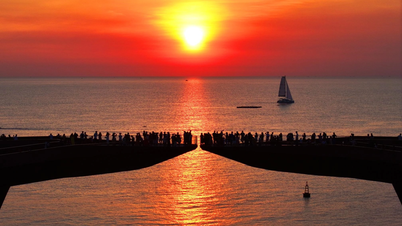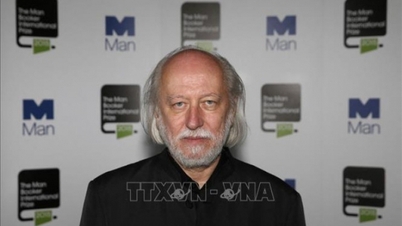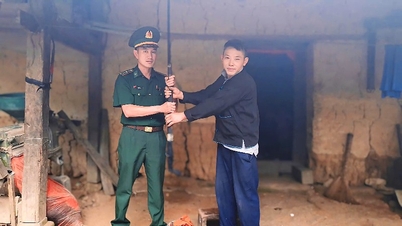Australia deploys Ghost Shark unmanned submarine
Australia has partnered with defense company Anduril in a $1.7 billion ($1.1 billion) contract to deploy a fleet of large unmanned submarines called Ghost Shark next year.
The Ghost Shark was co-developed in 2022 with an initial investment of $50 million from both sides. The first prototype was delivered in April 2024 – a year ahead of schedule – and production has now begun.

Ghost Shark - Australia's new generation unmanned submarine. (Source: Techcrunch)
The contract covers not only delivery but also ongoing maintenance and development. It is a “recognition program” in the defense budget, ensuring a long-term revenue stream for Anduril. The company has also built a 150,000-square-foot factory in Rhode Island to produce Ghost Sharks for other countries.
Ghost Shark is seen as a strategic solution to enhance long-range surveillance and strike capabilities in the Indo- Pacific region.
Uber prepares to bring helicopter service to Europe
Uber has announced plans to partner with Joby Aviation to integrate Blade Air Mobility’s helicopter service into the Uber app in Europe, starting next year. This is a new step in the field of “urban air mobility” that Uber has been pursuing since 2019.

Joby eVTOL electric aircraft flies over urban areas. (Source: Joby)
While it hasn’t revealed the exact routes, Blade currently operates charter flights between Nice and Monaco, as well as routes to airports in the New York area and southern Europe. Last year, Blade carried more than 50,000 passengers on these routes.
Joby CEO JoeBen Bevirt said integrating Blade into the Uber app is a stepping stone to deploying quiet, zero-emission electric aircraft in the future. Joby acquired Blade’s passenger transportation business, but its medical division (which transports live organs) will remain independent.
Four-person crew simulates year-long Mars mission
NASA has announced four volunteers who will take part in a 378-day simulated mission in a closed environment at the Johnson Space Center in Houston, Texas. Three men and one woman will live in a 158m² space, called Mars Dune Alpha, starting on October 19.
The mission is part of the CHAPEA (Crew Health and Performance Exploration Analog) program, which aims to replicate the harsh conditions of isolation, lack of resources, equipment failures and communication delays – similar to what humans would experience if they were actually living on Mars. Activities include simulated walks on the Martian surface, conducting scientific experiments and growing vegetables in simulated Martian conditions.

NASA volunteers will participate in simulated walks on the surface of Mars. (Source: NASA)
The goal, according to researcher Grace Douglas, is to collect data on human cognitive and physical performance in resource-limited environments. This data will help NASA make design decisions and plan for future real-world missions to Mars.
NASA plans to send humans to Mars as early as the 2030s. Before then, the Artemis missions to the Moon will serve as tests for space transportation and living systems. CHAPEA and other ground simulations will help NASA determine the capabilities needed to support humans living and working off Earth.
Previously, a 378-day CHAPEA mission successfully concluded in July 2024.
Source: https://vtcnews.vn/cong-nghe-11-9-uc-trien-khai-tau-ngam-khong-nguoi-lai-ghost-shark-ar964790.html



![[Photo] Prime Minister Pham Minh Chinh chairs a meeting of the Government Standing Committee on overcoming the consequences of natural disasters after storm No. 11](https://vphoto.vietnam.vn/thumb/1200x675/vietnam/resource/IMAGE/2025/10/09/1759997894015_dsc-0591-jpg.webp)

![[Photo] General Secretary To Lam visits Kieng Sang Kindergarten and the classroom named after Uncle Ho](https://vphoto.vietnam.vn/thumb/1200x675/vietnam/resource/IMAGE/2025/10/09/1760023999336_vna-potal-tong-bi-thu-to-lam-tham-truong-mau-giao-kieng-sang-va-lop-hoc-mang-ten-bac-ho-8328675-277-jpg.webp)
![[Photo] President Luong Cuong attends the 80th Anniversary of the Traditional Day of Vietnamese Lawyers](https://vphoto.vietnam.vn/thumb/1200x675/vietnam/resource/IMAGE/2025/10/09/1760026998213_ndo_br_1-jpg.webp)



























































































Comment (0)